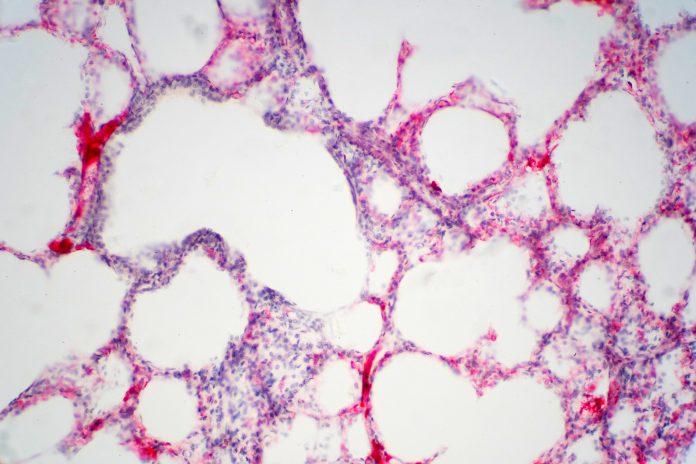Sarah Woolnough, CEO of Asthma UK and the British Lung Foundation, says the government should not miss this vital opportunity to protect our health once and for all
The past two years have shown us how devastating the consequences can be when things go wrong with our lungs. As CEO of the UK’s leading lung charity, every day I hear from people with lung conditions about the challenges they face and how these impact their life, health, job, relationships and wellbeing.
People shouldn’t have to fight for breath – we must do more to protect those living with lung conditions and prevent others from developing these diseases in the future, and now is the time to do that.
The government’s plans to ‘level up’ the country present a vital opportunity
The government recently released its long-awaited levelling up white paper, which sets ambitions to improve the health and living standards for everyone in the UK by 2030. However, for the government to achieve meaningful change it needs to seize this opportunity and put respiratory health at the top of its agenda. For decades lung disease has been side-lined and under-resourced despite the fact that it’s the third biggest killer in the UK.
Even before the COVID-19 pandemic it cost us a staggering £11 billion every year, with £10 billion falling directly on the NHS and patients.
It is a key driver of health inequality and the stark difference in life expectancy across the UK. People living in the poorest neighbourhoods are seven times more likely to die of a respiratory condition than those in the richest areas. This is partly because they are more likely to live in areas more polluted by toxic air, and in damp, poor quality housing that can trigger and worsen lung conditions. We cannot address lung disease without tackling these inequalities. Coupled with this, our failure to properly invest in respiratory research has held us back from being able to properly support the 1 in 5 people who live with a lung disease across the UK.
If its levelling up agenda is to have any chance of success, the government must specifically acknowledge the long-term impact of lung disease as a key driver of health and social inequalities, that can only be addressed if every part of government is mobilised to prevent, tackle and care for those living with lung conditions.
A joined-up approach is needed
The response to COVID-19, including record-breaking vaccine development and the speed with which our fabulous NHS has managed to roll it out, has shown that tackling respiratory illnesses is most effective when the vision and the lead comes from the heart of government, with clear and effective decision-making towards specific targets taking place at the national, regional and local levels. The same approach is needed to cut deaths and hospitalisations from lung disease. Tackling toxic air is a good place to start.
Air pollution is a leading cause of new lung conditions and responsible for 36,000 premature deaths every year – we’ll only see this number kerbed if we are able to redesign our heavily populated towns and cities to reduce the number of vehicles on the road. We’ve seen some incredible results from Clean Air Zones across cities like Birmingham, and in London the Ultra-Low Emission Zone (ULEZ) has recently been expanded to have a bigger impact on London’s toxic air. These schemes are effective because they remove polluting cars from our roads, are backed by extra support to help people switch to electric vehicles and public transport, and encourage walking and cycling which actively promote good mental and physical health.
Some of the largest health benefits to be had from tackling air pollution will be found in some of our poorest communities. 85% of people living in areas with illegal levels of air pollution make up the poorest 20% of the UK population, meaning that the health improvements that come from tackling toxic air will have a disproportionately positive effect on some of the poorest places in the country.
By ensuring all departments are involved in levelling up lung health, the government can make sure it hits its target to reduce the gap in healthy life expectancy by 2030, protect the environment and deliver greater economic productivity to some of the most deprived places in the UK.
Levelling up provides a key opportunity to improve the shocking health gap
Our recent report found that more than three quarters of people living with the deadly lung disease COPD did not receive fundamental, basic care, and that there could be well over one million people across the country living with undiagnosed COPD.
The 100 new Community Diagnostic Centres, due to open by 2025, will help to support people with a lung condition get diagnosed and manage their illness. However, in order to achieve the missions set out in the white paper and provide maximum ongoing support in every community, we need more of these centres rolled out right across the country, ideally three centres per million of the population by 2030. Residents should be able to easily access these diagnostic centres and get immediate support for any potential illness, no matter where they live.
After two years fighting COVID-19, and with a mandate to deliver levelling up, there has never been a better time for the government to make tackling lung disease its focus. Without action, the driving factors behind lung disease will continue to affect the worst off, and we will only see the health gap between the rich and the poor grow further. You can’t level up unless you tackle poor health. Now is the time for the government to protect our lungs once and for all.











